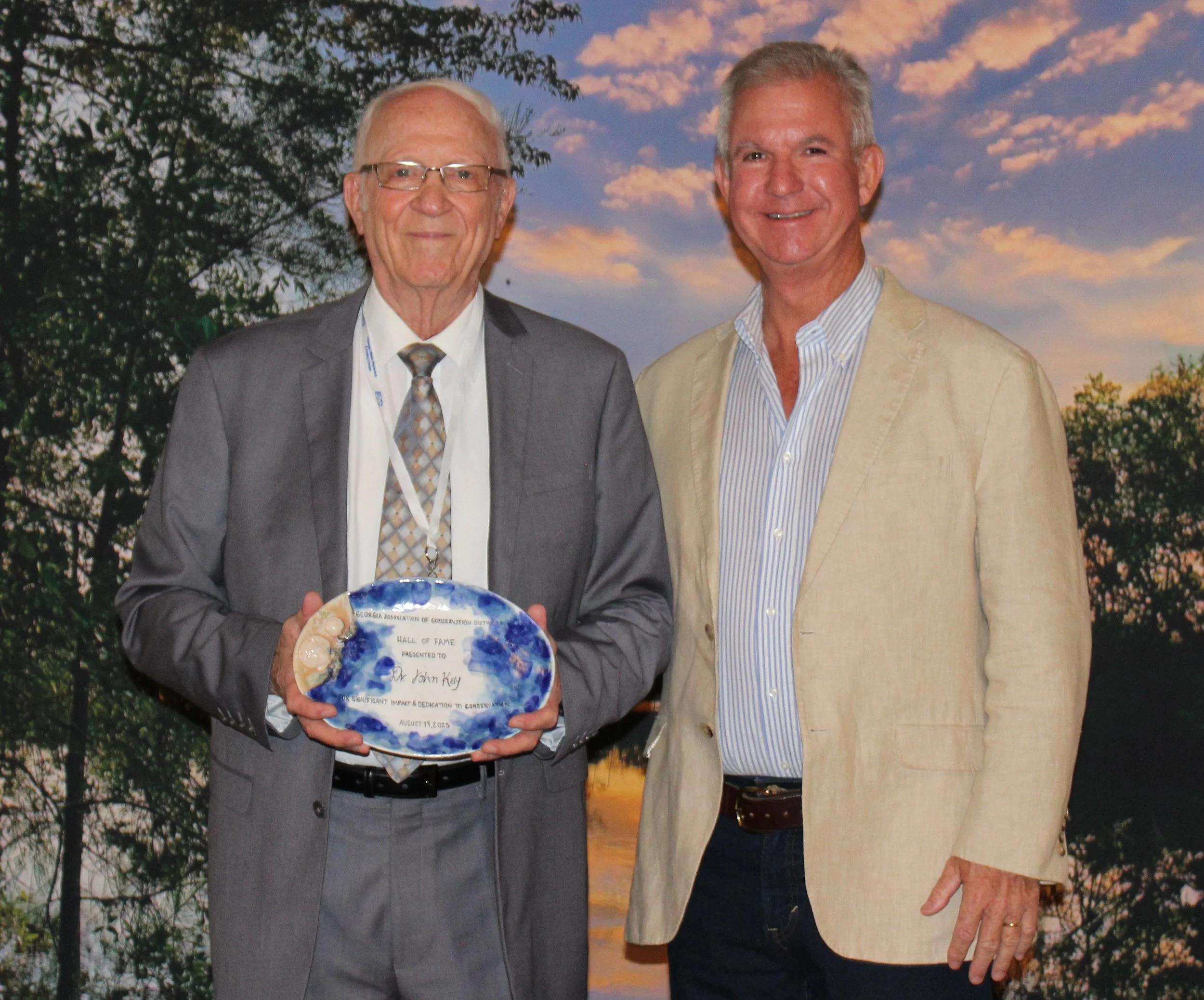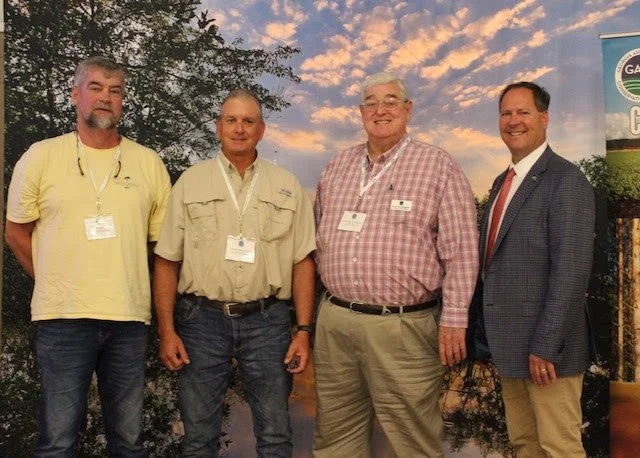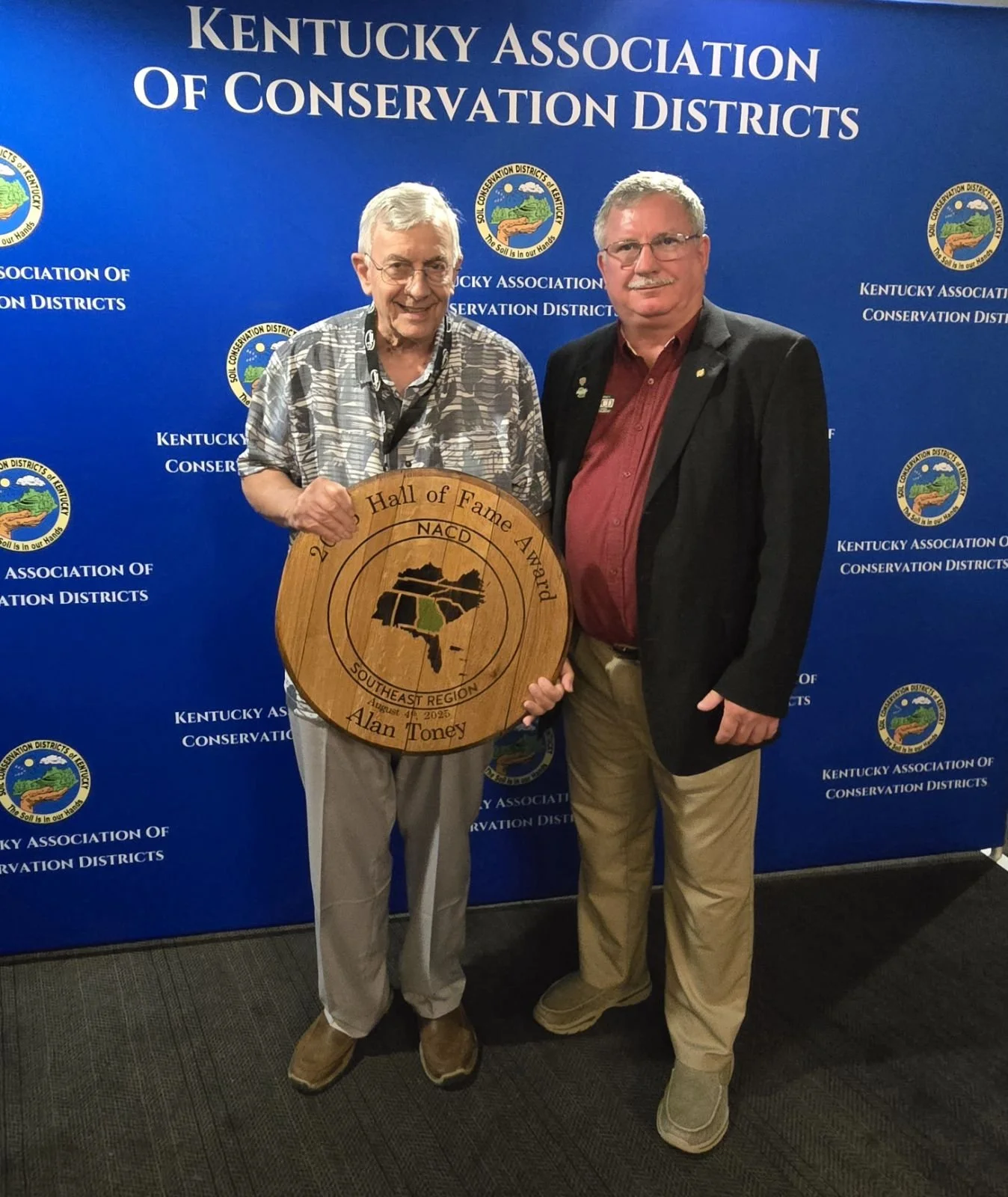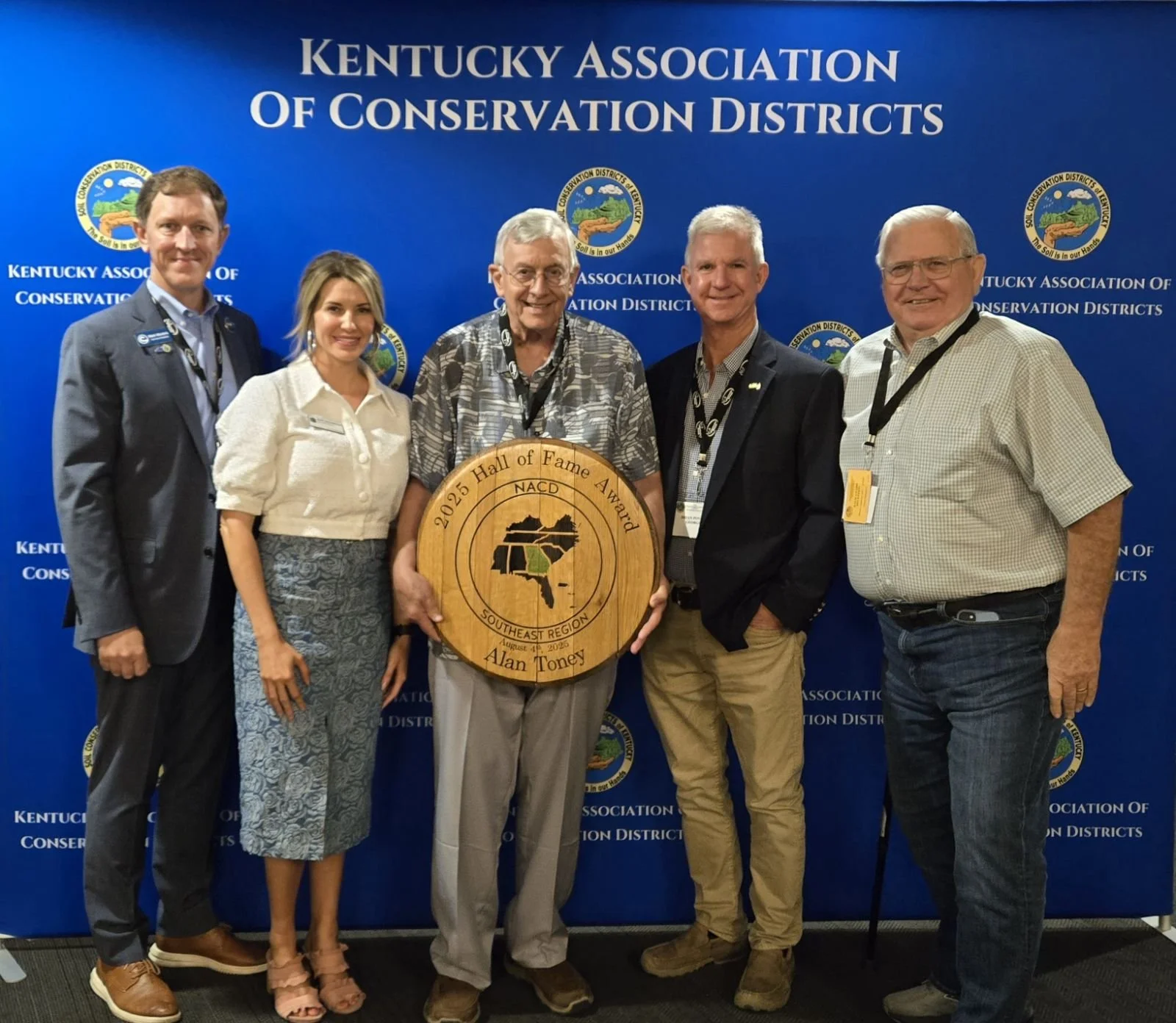Eddy Turner is a dedicated agricultural leader and steward of the land. He serves as a District Supervisor on the Central Georgia Soil and Water Conservation District, representing Washington County. Turner has recently been recognized as a Soil Health Champion by the National Association of Conservation Districts (NACD) and is celebrated for his innovative and sustainable farming practices.
Turner’s journey in agriculture began on his family’s farm in Tennille, GA, where he developed a strong work ethic and a passion for land stewardship. In 1976, he purchased a 280-acre farm, which he expanded to 580 acres, transforming it into a model of sustainability. His farming operation includes a mix of farmland, pine timber, and hardwoods, with a focus on soil health and wildlife conservation.
A key component of Turner’s farming approach is improving soil health through the use of multi-species cover crops, no-till farming, and careful soil management. Over four years, he has increased the organic matter in his soil from 1.6% to 2.6%, which has enhanced water retention and reduced the need for herbicides. His dedication to soil health is also evident in his role as a host for soil health workshops, where he educates other farmers on best practices for sustainable agriculture.
Turner’s commitment extends beyond his farm. He serves as the president of the Washington County Farm Bureau and has been involved in various agricultural and conservation organizations. He works closely with the Georgia Association of Conservation Districts, the Central Georgia Soil and Water Conservation District, and the National Association of Conservation Districts to promote soil health and sustainable farming. He also plays a key role in providing conservation equipment, such as a no-till drill, to farmers in underserved areas.
In addition to his conservation work, Turner is actively involved in his community. He is the chairman of the Washington County Ag Center and the annual Ag Center Rodeo, a member of the Washington County Cattlemen’s Association, and partners with local organizations like the Cattleman’s Association, UGA Extension, and the Farm Bureau to host educational events. He also works with the county's FFA chapter, encouraging the next generation of agricultural leaders. In his role as a District Supervisor for Central Georgia Conservation District, Eddy identified the opportunity to partner with T.J. Elder Middle School on a Hydroponics Raft System. This project was made possible through grant support and partnership with the USDA Natural Resources Conservation Service (NRCS) and the Georgia Soil and Water Conservation Commission (GSWCC). Turner commented, “our local FFA program, the students and leaders are outstanding and we are proud to assist with this important project. The students are learning about planning, growing, harvesting, packaging, marketing and sales. These are business skills that will follow them throughout life.”
Eddy Turner’s work exemplifies the power of agriculture to balance productivity with ecological responsibility. Through his resilience, innovation, and commitment to conservation, Turner is inspiring a movement toward sustainable farming practices that prioritize soil health and environmental stewardship.
“Eddy Turner exemplifies the meaning and sets the standard of a true conversationist. Over his career he has learned what makes his land more productive by using technology and a willingness to step outside of the box and try something new.” said Brian Ponder, President of GACD. “He is not only helping sustain his land for future generations but he has also been so willing to help other producers, especially young up and coming ones, to be prepared to feed and clothe the world for generations to come.”
"Conservationists like Eddy Turner deserve to be recognized for their continued efforts to help their land and the people in their communities," said Georgia NRCS State Conservationist Terrance O. Rudolph. "Mr. Turner has worked tirelessly to improve the natural resources over his lifetime, but also invested in future generations that will continue to provide benefits for years to come."
GACD’s Conservationist of the Year award is chosen in conjunction with Georgia’s USDA-NRCS and recognizes producers who are conducting exemplary conservation work on their land and have demonstrated a strong commitment to soil and water conservation through stewardship, outreach and community interactions. Eddy was nominated for this award by the Central Georgia Soil and Water Conservation District.
The mission of the Georgia Association of Conservation Districts (GACD) is to advocate for the conservation of Georgia’s natural resources by providing organization, leadership and a unified strategic direction to the Conservation Districts of the state. For more information on GACD or to explore opportunities on how you can support our efforts, please visit us online at www.gacd.us or on Facebook @GACDConserve.


















